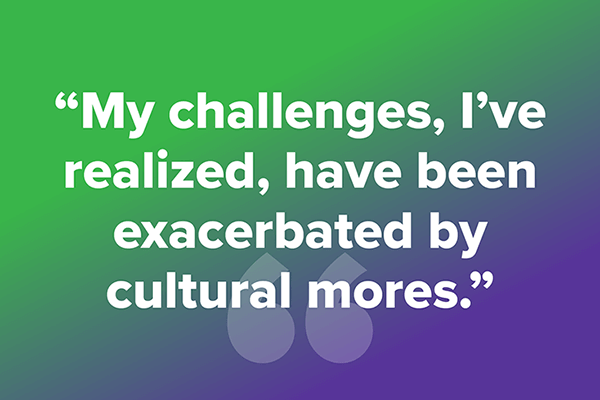
I was 14 years old when I first experienced depression. I began to feel an overpowering sense of loneliness and, for the first time in my life, I began questioning everything about my existence. Often, it felt like the darkness would never lift — like I would be forever trapped in a pit of despair with my feelings of worthlessness. This sadness and self-doubt brought me to my lowest point, and I contemplated suicide daily.
Eventually, I sought out medical help and was officially diagnosed with depression. While receiving this diagnosis helped me label what I was experiencing, I still felt alone. I didn’t believe that anyone else could relate to the darkness. I would continue to struggle with depression as well as anxiety and ADHD for the next decade. Ultimately, after 10 years of battling my symptoms, I have come to understand that mental health is just as important as physical health — and untreated mental illness can be as life-threatening as any serious physical condition.
My challenges, I’ve realized, have been exacerbated by cultural mores. Mental illness is highly stigmatized in Southeast Asian culture and largely seen as a sign of weakness. As a result, mental health is rarely a topic of discussion, and those living with mental health conditions face discrimination in the workforce and beyond. This was particularly evident when I served in the army of Singapore for two years. During the first few weeks of training, I began to develop adjustment issues — and these issues quickly escalated to depression and suicidal thoughts. Unsurprisingly, my struggles were not received well.
After my rocky teen years and difficult time in the military, I wanted to make a difference in the lives of people experiencing similar issues. I now study Criminal Justice and Psychology at Victoria University, work in the corrections industry in Melbourne, Australia and provide support to existing youth/community services. Many of the people I work with have a history of mental illness, and I find that I’m often able to relate and offer guidance. My goal is to become their advocate and help them communicate what they’re feeling.
I have also committed to my own recovery. I take medication to address chemical imbalances, read self-help books to keep my mind occupied, exercise to maintain my health and share my story on Instagram and TikTok as a way to connect with people.
However, managing depression is not a linear process. I still struggle with my self-esteem and frequently experience suicidal thoughts. I still lose motivation to exercise and work toward my personal and professional goals. I still have moments where I can’t crawl out of the depths of my sadness. But I continue to do my best every day. I get support from my friends who push me to keep moving forward. And I remind myself that I have an opportunity to be a light in the darkness for others who are suffering.
In the end, I believe there must be a purpose for my struggles. I want my story to mean something — and by helping others, I can make that happen.

